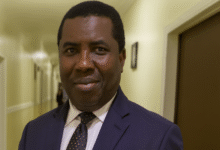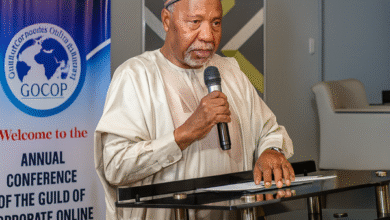Let’s embrace Biotech to mitigate food insecurity – OFAB
 Nigeria (OFAB), an International Organisation, has urged Nigerians to embrace biotechnology to mitigate issues around climate change and ensure food security in the country.
Nigeria (OFAB), an International Organisation, has urged Nigerians to embrace biotechnology to mitigate issues around climate change and ensure food security in the country.
Dr. Rose Gidado, Country Director, OFAB Nigeria, said this at the sideline of the science hangout, organised by the Alliance for Science Nigeria (ASN) on Monday in Abuja.
She said the meeting was to discuss “the status of genetically modified food” and how best to deploy biotechnology to ensure food security in Nigeria.
Gidado explained that conventional Agriculture might be failing due to a lot of reasons related to climate change, including incessant high rises in temperature, gully erosion and desert encroachment.
“Also, we have other environmental reasons why conventional agriculture is failing; the oil spillage, insecurities on our farms and a lot more.
“Biotechnology has been adopted in Nigeria, a seed launch was held last year in Kano and farmers are testifying to greater yields and one of the economic benefits is 20 percent yields increase per hectare.
“With the use of this technology, we are saving Nigeria N16 billion, which is normally used to import cowpeas; these crops undergo rigorous testing, making them safer for consumption compared to organic crops,” she added.
According to her, what makes genetic modification unique is its flexibility to adopt desired genes from donor plants and input into a crop aimed at improving given best-desired results and helping also with resistance in certain crops.
Also, Prof. Hamzat Lawal, Founder/CEO, Follow The Money, said that although GM- crops were facing issues around conspiracy theories, there were data and evidences to show that the technologies were straightforward science.
“Six million people in Nigeria go to bed hungry on a daily basis; the issue of food insecurity is at a critical stage globally.
“That’s why the biotechnology innovation is here to stay; it is an intervention that will save us from food shortage in the country.
“Until now, there were debates around climate change too; people will naturally reject what they don’t know because there is no trust yet which is only expected.
“The best we can do is to educate the public and carry out more sensitisation on this technology that will change a lot of things and ensure we eat safer food,” he added.











